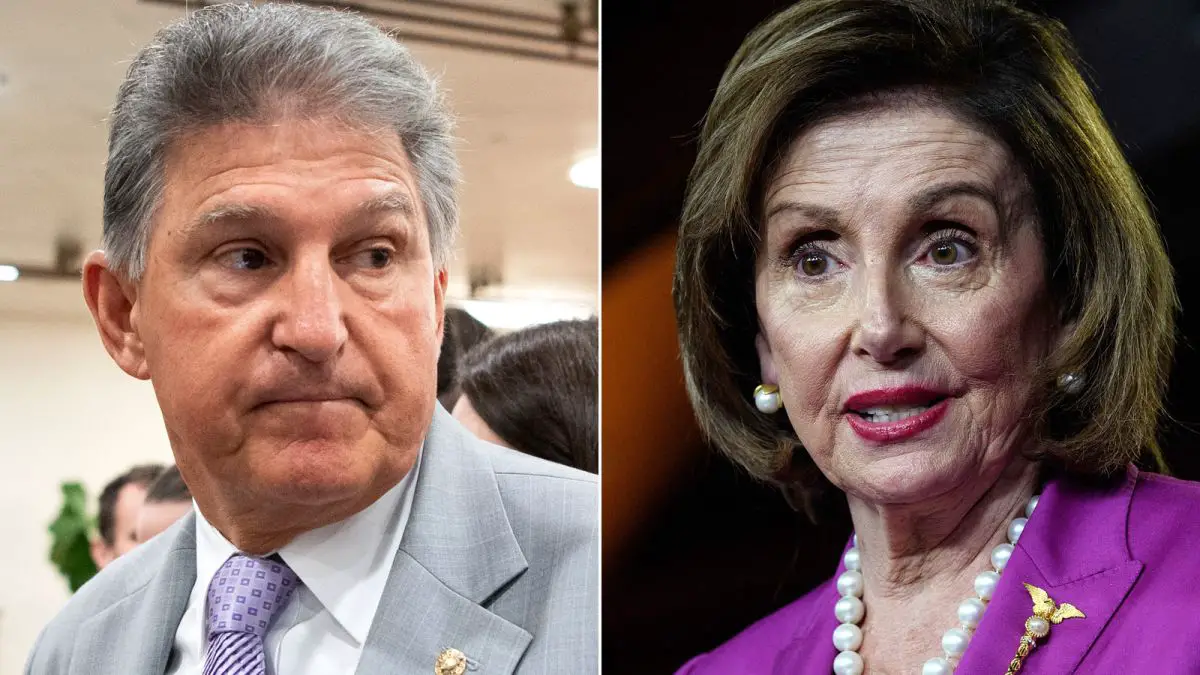Despite promises by “moderate” House Democrats to oppose any form of the reconciliation bill, known as the “Build Back Better Act,” if it added to the deficit, many of them appear to be on the verge of doing just that. It seems as though House Speaker Nancy Pelosi is plowing ahead Thursday night with a vote after the Congressional Budget Office (CBO) provided a score on the bill saying it would add $367 billion to the deficit between 2022 and 2031. This result contradicts President Biden’s claim that the bill would be fully paid for. Furthermore, CBO estimates are based on static information which often changes down the road meaning the deficit impact would likely be much higher than the $367 billion CBO figure.
At this point, the White House is thrilled to be breaking their promise and is applauding Pelosi’s decision to move forward:
The CBO released its full cost estimate on Thursday for President Biden’s social spending bill, dubbed the “Build Back Better Act,” fulfilling a demand from moderate Democrats who wanted more information about the legislation’s long-term financial implications.
“CBO estimates that enacting this legislation would result in a net increase in the deficit totaling $367 billion over the 2022-2031 period, not counting any additional revenue that may be generated by additional funding for tax enforcement,” the CBO said in a release.
The Biden administration has argued the cost of the bill’s expansive social and climate programs is fully covered by offsets such as tax hikes on the wealthy and enhanced IRS tax enforcement. The CBO score undermines that position.
The bill is a trainwreck for America, both in terms of fiscal policy and social policy. It’s filled with new entitlements and would be destined to throw gasoline on the country’s current rate of inflation, despite specious claims from Democrats.
As House GOP Leader Kevin McCarthy pointed out, the White House has been flat out lying when it comes to claims the legislation would pay for itself or be deficit-neutral:
Hey Twitter, I'd like to report misinformation from the White House. pic.twitter.com/4wb2MvIyRH
— Kevin McCarthy (@GOPLeader) November 18, 2021
At some point Thursday evening, there will be a limited 20-minute debate on the bill followed by a vote. It’s unlikely Pelosi would be moving forward unless she thought she had 218 votes in the bag. She’s either got the votes, or she’s one or two shy and will be daring moderates to vote against it and risk the ire of their progressive counterparts.
The wrinkle in this plan, of course, is that neither Joe Manchin nor Krysten Sinema in the Senate had said they would sign on to the legislation. Manchin has been more strident than Sinema, basically stating he oppose this legislation in principle due to fears of further rampant inflation, and certainly wouldn’t be voting for anything that added to the deficit. This bill has both negatives going for it.
One part of the legislation drawing particular blowback is the increase of the SALT deduction, the deduction for state and local taxes. This change, under President Trump, disproportionally affected residents of high-tax liberal states like New York and California. These taxpayers will be taken care of by Democrats in the Build Back Better Act despite what Democrats claim:
Nice misleading headline from NBC!
Eliminating the SALT tax cap is a huge tax cut for wealthy taxpayers, there's nothing "middle class" about it. Media needs to stop carrying their water. https://t.co/UQTfOUY78Y
— Esther Joy King (@esther4congress) November 18, 2021
In fact, a large chunk of the bill exists specifically to give taxpayers in high tax states their deductions back. This primarily benefits wealthier individuals who own expensive real state, and it’s the second most costly item in the bill:
Problem with priorities. See Chart
1.Universal PreK $390 bil
2.Increase State&Local (SALT)Tax Cap $285 bil
3.CleanEnergy&Climate $220 bil
4.PaidFamily&Medical Leave $195 bil
5.CleanEnergy&TaxCredits https://t.co/TVvdjeA16P— GlenzLenz (@glenzlenz) November 16, 2021
Democrats know this bill is a loser, but the House needs to pass it so progressives get some kind of vindication after they held their noses to vote for the infrastructure bill days ago. Now they want moderates to hold their noses and do the same.
The question is all moot anyway since Sen. Joe Manchin, the real president, is the one holding the veto power. Based on numbers back in his home state, he doesn’t have much incentive to support Biden’s Build Back Bloated inflationary agenda:
New https://t.co/694sju1jzT poll: Joe Manchin has 60% approval compared to Biden’s 32%.
78% support Manchin's efforts to pass the bipartisan infrastructure bill.
Nearly 74% said Manchin should oppose the president’s Build Back Better plan.https://t.co/XoMVkWqntU
— Marc Thiessen ??? (@marcthiessen) November 18, 2021
Donate Now to Support Election Central
- Help defend independent journalism
- Directly support this website and our efforts
